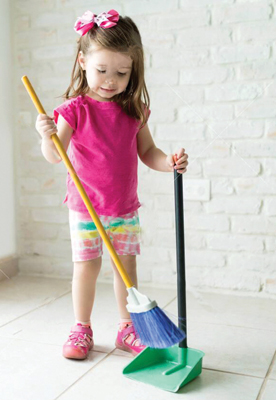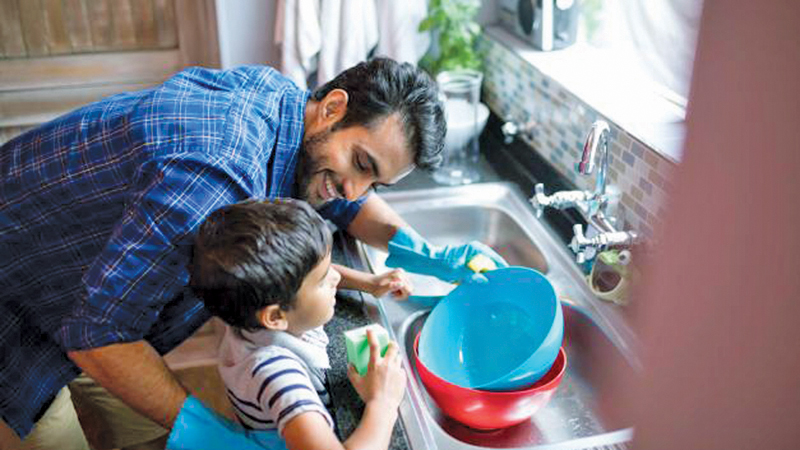In the early years of a child’s life, the significance of instilling good habits cannot be overstated. Among these habits, teaching children basic cleaning skills not only contributes to a cleaner environment but also plays a crucial role in their overall development.
Responsibility
Encouraging children to take part in cleaning routines instills a sense of responsibility from a young age. By assigning age-appropriate tasks, such as putting away toys or wiping surfaces, children learn to contribute to the well-being of their living spaces. This fosters a sense of independence, empowering them to take charge of their surroundings.
Routine
 Introducing cleaning habits establishes a sense of routine and structure in a child’s life. Consistent tasks create a predictable environment, providing a sense of security and stability. As children grow accustomed to these routines, they develop valuable time-management skills that will serve them well in various aspects of their lives.
Introducing cleaning habits establishes a sense of routine and structure in a child’s life. Consistent tasks create a predictable environment, providing a sense of security and stability. As children grow accustomed to these routines, they develop valuable time-management skills that will serve them well in various aspects of their lives.
Participating in cleaning activities enhances both fine and gross motor skills in children. From handling cleaning tools to moving around a space, these activities contribute to the development of coordination and muscle strength. As children engage in tasks like sweeping or sorting objects, they refine their motor skills in a practical and enjoyable way.
Learning values
Cleaning involves more than just tidying up; it instills essential values. Teamwork, respect for one’s environment, and the understanding of consequences are integral lessons learned through shared cleaning experiences. As children collaborate with family members or peers in keeping spaces clean, they absorb these values organically.
Mastering new skills boosts a child’s confidence. When children see the tangible results of their cleaning efforts, whether it’s a tidy room or neatly arranged belongings, they gain a sense of accomplishment. This positive reinforcement motivates them to take on more responsibilities, nurturing a healthy self-esteem.
Health and hygiene
Teaching children to clean goes beyond maintaining a tidy home; it also instills the importance of health and hygiene. Understanding the connection between cleanliness and well-being encourages children to adopt habits that contribute to their overall health. This knowledge lays the foundation for a lifetime of good practices.
Through cleaning routines, children develop a respect for their belongings and shared spaces. Learning to care for and organise personal items fosters a sense of ownership and respect for the property of others. These foundational values contribute to the development of responsible, considerate individuals.
Incorporating cleaning habits into a child’s early years is a multifaceted investment in their well-being. Beyond the immediate benefits of a tidy space, children gain essential life skills, values, and a strong foundation for personal growth. As parents and educators, embracing the opportunity to teach cleaning habits is not just about cleanliness—it’s about nurturing capable, responsible, and confident individuals poised for success in various aspects of their lives.









